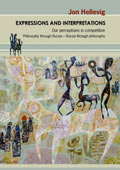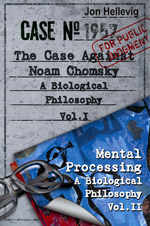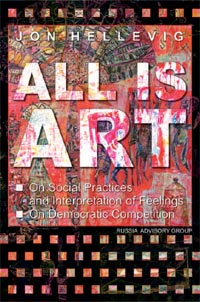|
|
| |
European Union
It is the prevailing opinion in Europe to think that the European cultures would have achieved something in particular, some unprecedented heights of thinking, philosophical and religious supremacy. Yet, looking back at history we see that there is not much to praise in those aspects of life. � Any success there has been has been entirely owing to competition (not �thinking�, not philosophies, not �ideas�).
Europe�s success in the past can be explained by one notion, competition. But, distorted perceptions on life, history, philosophy and science, have always caused other (superstitious) explanations to emerge. � And therefore Europeans of today are building society on the wrong building blocks, a construction where the fundament, i.e. competition, is ignored.
Today the European Union is the antipode of competition in all functions of life: accelerating reduction of democracy; dominance of monopolistic press; conscious abolition of competition in all forms of economy: single currency; normative squeeze, directives (commands), standards, standardization (standardization is the official European religion everybody in power believes in); reduction of scientific competition; non-competitive justice; unification of values. � Europe should be juxtaposed with the United States of America, which is a democratic superpower and therein lays its strength. The Congress consisting of the Senate and the House of representatives is elected by the people of the respective states. The senators and congressmen are in all their actions accountable directly to specific people with a real electorate. The President of the United States is elected by the people; there is direct competition between the states; and direct control of the representatives. The success of American democracy is not due to any extraordinary insight of the �founding fathers�, but a result of natural democratic competition then and now. � Nothing is more revealing than the �mission� of the European Court: The policies of the European Court according to Hartley (p. 80) are to (1.) strengthen the Community; (2.) increase the scope and effectiveness of Community law; (3.) and enlarge the powers of Community institutions. � This is in blatant contrast to the United States, where the courts are put in the service of protecting individual freedom and liberty (even these words sound so old-fashioned) against the very state.
In the EU democracy is a grass-root phenomenon only. By the Byzantine system of undemocratic appointments and representation in the Commission and Council there is but a memory left of European democracy by the time spheres of decision making are reached, but this seems to be sufficient for creating the effect. � From the elections at the level of national states a mere faint reverberation is transmitted up to the Commission � this is the dilution and delusion of European democracy. � The European Commission soberly prefers to call this diluted democracy �Democratic Supervision.�
The elected representatives in the European Parliament have very limited power, the Commission consists of appointed, non-elected bureaucrats; the Council consists of rotating delegates of national governments. These delegates may or may not be elected representatives in a national parliament, but they are certainly not elected to represent the people in the Council. -
But the national governments are elected? � It is fair to say that the national governments are more or less democratic institutions appointed by the national parliaments, but the reverberations of the democratic elections do not carry to the EU decision making.
Normative Suffocation
An analysis of the draft constitution, the adaptation of which was put off by a lucky outcome of ordinary political intrigues, is very telling about the actual character of the EU and where it is aiming. It reveals the collectivist and metaphysical superstition on which the EU is based: In the EU the actors are �the Union� and �the Member States�. States have political rights and duties in the EU, but people do not. The �EU� (this animated thing) is even supposed to have �values�, thus the draft Constitution (article I-1.2) says: �The Union shall be open to all European States that respect its values and are committed to promote them together�. - This obligation is not laid on the people, but on the �States.� (and how about the people?). The EU also aims at �respecting the identity of the �States� (EUC Art. I � 5a). - In the US they strive to respect the identity of humans. - Common sense tells that individual people have values and that these values can be measured by the millions. - Who identifies these values of the EU? It seems that it is the unelected Commission and the European Court, which itself has the mission to �strengthen the Community and enlarging the powers of Community institutions� (so how can there be any impartial justice if the courts have a very political mission?). - In fact all the political institutions in the EU exist for the sole purpose of promoting the Union and its values: �The Union shall be served by an institutional framework which shall aim to promote its values� (EUC Art I-19). � In the US and Russia the institutions are placed in the service of the people � but in the EU it is the other way around.
These �values� themselves are most revealing in the field of the EU�s common foreign and security policy: �Member States shall actively and unreservedly support the Union�s common foreign and security policy in a spirit of loyalty and mutual solidarity and shall comply with the Union�s action in this area. They shall refrain from action contrary to the Union�s interests or likely to impair its effectiveness� (EUC Art I-16). � When the metaphysical veil called state is lifted it will emerge that the obligation is assigned to the people of these States � and this cannot mean that it is assigned to �a part of the people� or �the majority of people�. It follows that the European Constitution would impose a constitutional obligation to all the people to �unreservedly support� EU�s military policy. � I.e. if the EU declares a war each and every citizen has an obligation to support the war effort, and not only: they have to do it �in a spirit of loyalty and mutual solidarity� (there is no wavering here! � Why not add �and with a smile on their face till the last breath�?). - By putting this obligation on the �Member States� it means that the issue is withdrawn from the democratic process. - This ideological agit prop goes, of course, hand in hand with the hardware: �Member States shall undertake progressively to improve their military capabilities�; �the performance of these tasks shall be undertaken using capabilities provided by the Member States�� (EUC Art I-41).
|
|

To download a free pdf file of this book, please click
here
To buy this book, please enter here (www.ruslania.com bookstore)

Click here to download free PDF file

Click here to download free PDF file

Click here to download free PDF file
|

